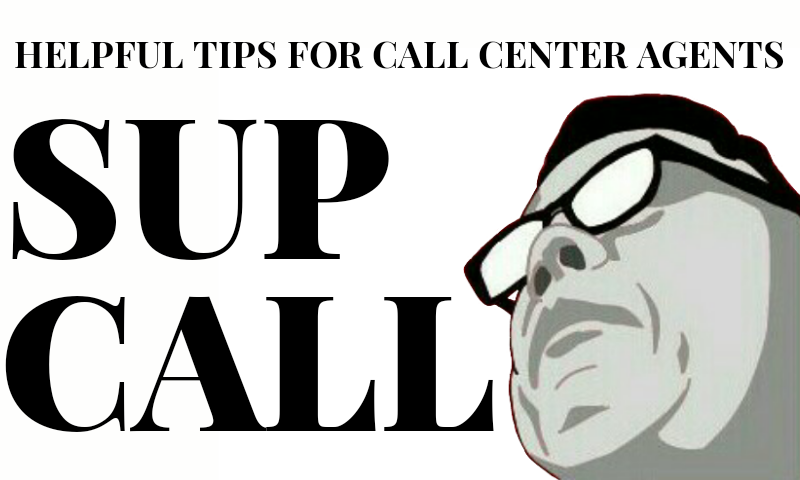“Every job is good if you do your best and work hard. A man who works hard stinks only to those who have nothing to do but smell others.”- Laura Ingalls Wilder, American Author
There are call center agents and then there are rockstar call center agents. Every month, when management gives out awards and incentives, rockstar call center agents go home with big fat bonuses while everyone else pretty much just goes home. Makes you wish you were a rockstar call center agent yourself, right? Well, I say stop wishing and start doing. In this post, I’ll show you 10 best practices that make a rockstar call center agent.
Anything worth doing is worth doing well. As a call center agent, you’re already spending at least 40 hours every week on the phone taking care of customers. Why not go the extra mile and do the best practices a rockstar call center agent does and benefit tremendously from it? These best practices will take just a little more effort, just a bit more push to pull you out from the mire of mediocrity and propel you into rockstar call center agent status!
Rockstar Call Center Agent Best Practices
Efficiency and Timeliness
Time is gold and customers value their time. According to a 2014 study by workforce management firm ClickSoftware, Americans spent an average of 30 hours annually waiting on the phone. This is roughly equivalent to $753.00 or a whopping $108 Billion worth of time wasted by every employed adult American. Over 35% of customers who got frustrated transacting with a call center agent have cancelled their service. These staggering numbers alone should give you an idea how valuable time actually is to your customers and should make you realize why customers get so frustrated every time they are put on hold or have to wait for a call center agent to resolve their concerns. A rockstar call center agent takes advantage of this fact and one of her best practices is to make the customer feel how much she values the customer’s time and will do everything to resolve the customer’s concern in an efficient and timely manner. A rockstar call center agent avoids placing the customer on hold as much as possible. If a customer really needs to be put on hold, the rockstar will clearly explain why the hold is necessary and set the customer’s expectations how long the hold will be. Active listening is vital so that customers do not have to repeat themselves. When a customer feels you are efficient, competent and you truly value her time, she will definitely be one happy customer. So happy she might just give you a perfect “10”!Genuine Sincerity
If there is one reason why customers prefer talking to a call center agent to resolve a concern rather than transacting business with an Interactive Voice Response (IVR) system, it’s because of the warmth and sincerity of a human call center agent on the other end. Take that warmth and sincerity away and chances are Artificial Intelligence will replace most call center agent functions much sooner than expected. Apparently, those IT guys have yet to develop an algorithm to replicate human sincerity and this remains to be the single biggest advantage a call center agent has over machines. A rockstar call center agent ALWAYS projects genuine sincerity in her tone on every call. I know it’s not easy but genuine sincerity is what separates a rockstar call center agent from everybody else and if you want to be a rockstar call center agent, you have to depart from those canned empathy statements that practically everybody uses and develop your own unique way of projecting genuine sincerity.Go the Extra Mile and Then Some
Every customer who transacts business with a call center agent expects her concern to be resolved. That’s expected. And if the call center agent does exactly what the customer expected and nothing else, then there’s nothing special about that transaction and the call ends “Passive”, at best. However, if the call center agent can go the extra mile and provide the customer something extraordinary and unexpected that the customer can appreciate, then the potential for the customer to give the call center agent a perfect “10” becomes higher. And the extra service doesn’t have to be huge or earth-shaking. Something as simple as being friendly, sincere, competent, or efficient can be well appreciated. The customer will love you for providing her self-serve options that can make her life much easier. As a call center agent, you already have an idea how to resolve your customer’s concern but you don’t have to lay down all your cards on the table right away. Rather than tell the customer how easy it will be to resolve her concern, do the opposite and make the customer feel that it will take a bit of effort to resolve her concern but reassure her that you will do everything to make certain her concern gets resolved as efficiently as possible. You’re not exactly being dishonest here. You’re just making the customer feel she is special and that you will take special care of her concern. Under promise but over deliver. That’s how you WOW your customer. That’s how you become a rockstar call center agent.Effective Communication
Communication is a two-way highway. On top of the ability to speak clearly, a rockstar call center agent also practices active listening on every call. It is very frustrating for any customer to have to repeat themselves. It is even more frustrating if the customer senses that the call center agent did not understand the customer’s real concern. Often, because a call center agent gets the same customer concerns on practically every call, there is the tendency to be complacent and provide a solution based merely on keywords the customer says. While this may seem like an efficient way of resolving the customer’s concern, the risk here is the call center agent may miss a key point in what the customer was saying and may end up providing an inaccurate resolution and frustrating the customer even more. If unsure, a rockstar call center agent will paraphrase what the customer said just to verify accuracy. Be mindful of the difference between paraphrasing and parroting. A rockstar call center agent chooses her words well before she opens her mouth, using power words and avoiding jargons customers may not be familiar with. A rockstar call center agent will never interrupt the customer and confidently speaks in a low, calm tone.Information overload is never a good thing. I’ve got a few more best practices for you on the next post but for now, let these rockstar call center agent best practices sink in first. Take what you can from these best practices and apply them on your calls. Try and tweak these best practices to suit your unique personality. You should expect a gradual improvement in your scorecard over the next few days after applying these best practices. Don’t rush it. Just enjoy your journey from mediocrity to rockstar call center agent. See you on the next post.
RELATED ARTICLE: 6 More Ways to be a Rockstar Call Center Agent





![The Real Cost of Losing Customers due to Poor Customer Service [Inforgraphic from Provide Support]](https://www.providesupport.com/blog/wp-content/uploads/2017/10/The-Real-Cost-of-Losing-Customers-due-to-Poor-Customer-Service.jpg)












